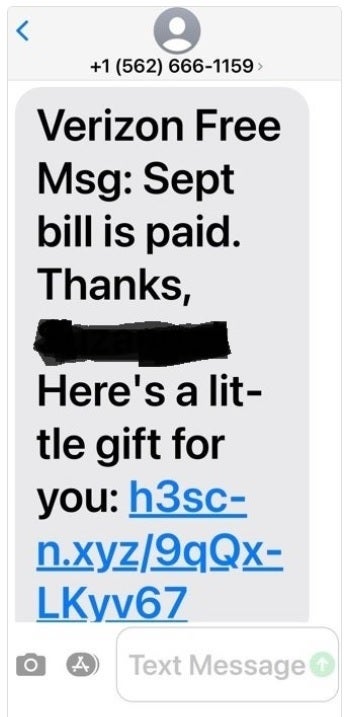Follow Apple's useful tips and protect your financial accounts from getting wiped out

Apple has updated the support page that gives tips to iPhone, iPad, and Mac users telling them how to avoid getting scammed by email and SMS phishing attacks and fake support calls. These attacks have one goal and that is to get you to reveal some personal information such as passwords and social security numbers. Armed with this personal data, the attacker looks to break into his victims' banking apps, trading apps, credit card apps, and other financial apps.
Once the attacker accesses one of the accounts belonging to a victim, he changes the password and address to lock out the account's real owner and transfers bank account balances to an account he controls. With a stock trading account, the attacker liquidates all holdings and has the funds wired to an account he owns. After changing the address of a credit card account, the bad actor can claim his cards have been stolen and request new cards get sent to his address. The bad thing is that by the time any of these things are discovered, it might be too late to reverse the bad deeds.
How do scammers try to get you to reveal personal data?
Phishing is an email or text that appears to come from a legitimate firm that you do business with. But the message really comes from a scammer who tries to get you to tap on a link by scaring you. You might receive a notice that claims to come from your bank to verify a huge wire transfer. There really is no such transfer, but the scammer knows that you'll be so emotional that you won't question the legitimacy of the message and will turn over your password, PIN, and social security number which are requested when you click on a link.

This message is a fake and tries to get you to click on the link
Within minutes, you're locked out of your account and your money is gone. Other scams to watch out for are phone calls that appear to come from Apple support or other companies but are as phony as the phishing emails and texts. Apple also says to beware of fake promotions offering free products and prizes, and unwanted Calendar invitations and subscriptions. All of these have the same goal which is to get you to reveal personal data.
Apple says to watch for the following clues:
- The sender’s email or phone doesn’t match the name of the company that it claims to be from.
- The email or phone they used to contact you is different from the one that you gave that company.
- A link in a message looks right, but the URL doesn’t match the company’s website.
- The message looks significantly different from other messages that you’ve received from the company.
- The message requests personal information, like a credit card number or account password.
- The message is unsolicited and contains an attachment.
You can help stop scammers from gaining access to your apps and accounts by using two-factor authentication (2FA). 2FA works like this: After you start logging into an app, your phone will receive a code by text. You enter the code in order to log into the app. Do not disable 2FA even if you get a call, text, or email asking you to do so.
What does Apple suggest you do to protect yourself?
Apple suggests that you do the following:
- Never share personal data or security information like passwords or security codes, and never agree to enter them into a webpage that someone directs you to.
- Protect your Apple ID. Use two-factor authentication, always keep your contact information secure and up to date, and never share your Apple ID password or verification codes with anyone. Apple never asks for this information to provide support.
- Never use Apple Gift Cards to make payments to other people.
- Learn how to identify legitimate Apple emails about your App Store or iTunes Store purchases. If you send or receive money with Apple Cash (U.S. only), treat it like any other private transaction.
- Learn how to keep your Apple devices and data secure.
- Download software only from sources you can trust.
- Don't follow links or open or save attachments in suspicious or unsolicited messages.
- Don't answer suspicious phone calls or messages claiming to be from Apple. Instead, contact Apple directly through our official support channels.
Taking the extra time to make sure that you're on top of things may seem like a pain in the butt. But it could help save you from having your financial accounts drained.
Follow us on Google News












Things that are NOT allowed:
To help keep our community safe and free from spam, we apply temporary limits to newly created accounts: